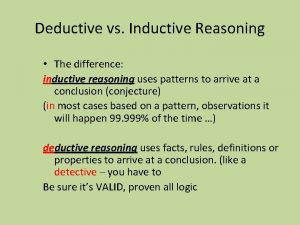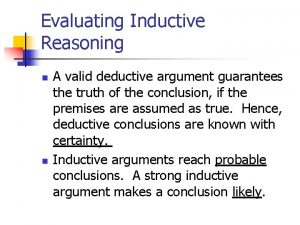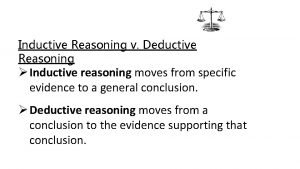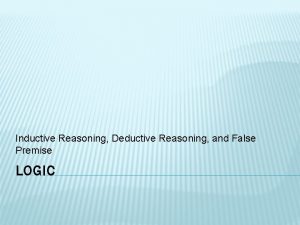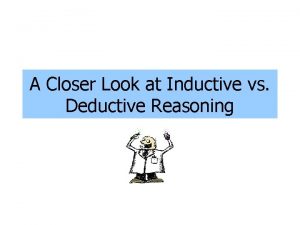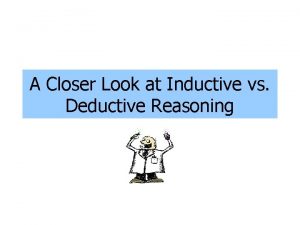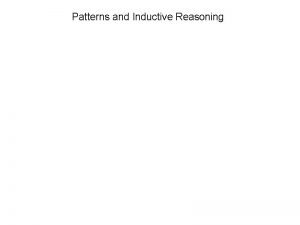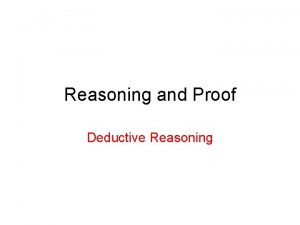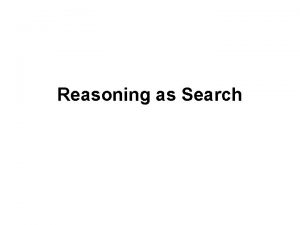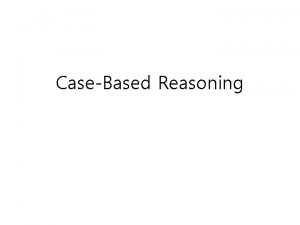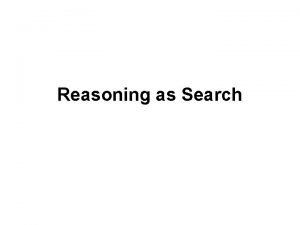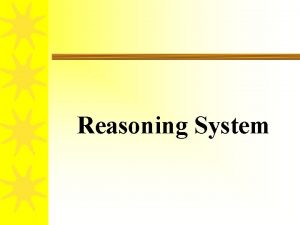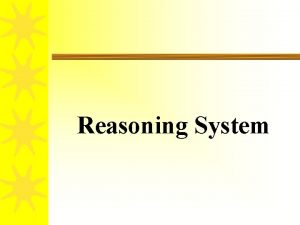Chapter 1 Law Legal Reasoning and the Legal










- Slides: 10

Chapter 1 Law, Legal Reasoning, and the Legal Profession 1 -1 Copyright © 2015 Mc. Graw-Hill Education. All Rights Reserved.

Introduction • What are the basic functions of the law? • What role does the law play in business and in our lives? • What are the sources of law? • How does the law change and evolve? 1 -2 Copyright © 2015 Mc. Graw-Hill Education. All Rights Reserved.

The Nature of Law The Functions of the Law: • • Keep the peace Maintain order Facilitate planning Promote social justice Legal Rules: • Have a general application within society • Were developed by a legitimate authority • Threaten sanctions for non-compliance 1 -3 Copyright © 2015 Mc. Graw-Hill Education. All Rights Reserved.

Classifications of Law Substantive Law vs. Procedural Law • Substantive law sets out the rights and duties of the population. – Duties are a command to do or not do something. – Rights and privileges include the right to free speech or the privilege of receiving government benefits. • Procedural law establishes the rules for enforcing substantive law. Criminal Law vs. Civil Law • Criminal law defines breaches of duty or obligation to society. – People are punished only if they violate the terms of written law. • Civil law establishes private duties that people or corporations owe to each other. – Tort laws create many duties including the obligation to exercise reasonable care. 1 -4 Copyright © 2015 Mc. Graw-Hill Education. All Rights Reserved.

Checks and Balances • Divided power among federal and state governments • Divided power between branches of the federal government Federalism • Establishes 51 different legal systems 1 -5 Copyright © 2015 Mc. Graw-Hill Education. All Rights Reserved.

The Constitutional Powers Constitutional Limitations • Bill of Rights • The Constitution gives Congress the power to pass • The Due Process Clause laws • The Commerce Clause: Regulate Interstate & Foreign Commerce • Taxing Power: Create Business Regulations 1 -6 Copyright © 2015 Mc. Graw-Hill Education. All Rights Reserved.

Sources of Law • Constitutions – The highest law of the land • Treaties – Supreme law of the land – Made by the President & ratified by 2/3 of congress • Statutes – Product of lawmaking by legislatures • Administrative Rules – Independent agencies established by congress – May have judicial functions 1 -7 • Executive Orders – Issued by the President or Governor • Judicial Decisions – Court decisions create a body of “common law” – Judicial review of other sources of law • Private Law – Contracts created by private persons Copyright © 2015 Mc. Graw-Hill Education. All Rights Reserved.

Legal Reasoning • Tool For Understanding & Interpreting the Law • Legal Interpretation – – Plain meaning of language History of the rule Purpose to be achieved Public Policy • Orderly Change – Procedural Safeguards – Prohibition of Ex Post Facto Laws – Stare Decisis • Relying on prior decisions allows for predictability • Adaptability through overruling laws or choosing precedent to apply 1 -8 Copyright © 2015 Mc. Graw-Hill Education. All Rights Reserved.

Jurisprudence • Legal Positivism – Consider public policy and morality in legal interpretation • Natural Law – Recognition of a higher set of rules • Sociological Jurisprudence – Decisions promote social agenda • Legal Realism – Focus on law in action 1 -9 Copyright © 2015 Mc. Graw-Hill Education. All Rights Reserved.

The Legal Profession • The Adversary System – Each party has legal counsel • Professional Responsibilities – Confidentiality – Work Product Privilege – Competence and Care • Preventative Law – Lawyers involved in business planning help avoid legal problems 1 -10 Copyright © 2015 Mc. Graw-Hill Education. All Rights Reserved.
 Inductive vs deductive reasoing
Inductive vs deductive reasoing Deductive approach
Deductive approach Newton's first law and second law and third law
Newton's first law and second law and third law Newton's first law
Newton's first law Inductive reasoning vs deductive reasoning
Inductive reasoning vs deductive reasoning Inductive v deductive
Inductive v deductive Every quiz has been easy. therefore, the test will be easy.
Every quiz has been easy. therefore, the test will be easy. Inductive vs deductive geometry
Inductive vs deductive geometry Patterns and inductive reasoning
Patterns and inductive reasoning Boyle's law charles law avogadro's law
Boyle's law charles law avogadro's law Charles law constant
Charles law constant
